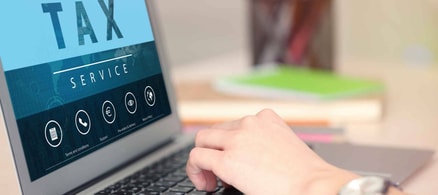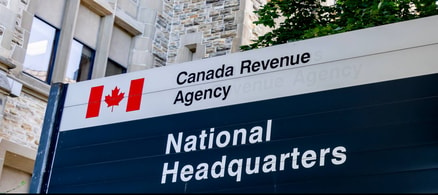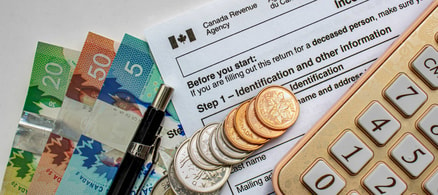Check your email for notifications
While the CRA is planning to email up to 75,000 people in total this August, November and May 2023, the government says it wants to “make sure” that about 8.9 million of these uncashed cheques — as of May — end up where they belong.
For the CRA, these e-notifications are simply to “encourage” people to cash their hard-earned taxpayers’ money.
Maximize Your Tax Refund with TurboTax Canada!
Simplify tax season with this user-friendly software. Get step-by-step guidance, maximize deductions, and file with confidence. Trusted by millions, TurboTax Canada ensures accuracy and peace of mind. Start your taxes today and get the refund you deserve
Get the tax refund you deserveHow do you find out if you have uncashed cheques?

You don’t have to wait for a notification to see if you have money if you have an uncashed cheque. You can log into My Account feature online.
The process is pretty simple. Just log in to the CRA My Account portal, navigate to the “Related Services” section and click on “Uncashed Cheques.” From there, they will be able to easily check if they have a CRA cheque.
There’s also a form to request a duplicate payment, which you can complete and submit online, or mail to the Sudbury Tax Centre.
If you’re registered for direct deposit, you’ll get the payment deposited straight into your bank account. If not, you’ll receive a cheque by mail — so make sure your address is current on your CRA account.
Through the My Account feature, taxpayers can register for the direct deposit to get any payment quickly and directly into their bank account. This way is better since people can make sure they won't be missing a payment after registering for direct deposit.
However, in case a taxpayer is not signed up for My Account or email notifications, they can find out if they have any uncashed cheques by calling 1-800-959-8281.
In addition, representatives can also view uncashed cheques on behalf of their clients through the Represent a Client Service.
Make sure to use the online My Account feature
If all of this information sounds new to you, don’t fret since it is relatively new.
Logging online to see one’s status in relation to the CRA began in 2020 when the revenue agency introduced the My Account feature, allowing taxpayers to view their uncashed cheques and collect unclaimed benefit and credit payments that belong to them.
Ever since introducing this feature in February 2020, about two million uncashed cheques valued at $802 million were redeemed by Canadians between Feb. 10, 2020, and May 31.
Grow Your Savings Effortlessly with Moka
Automate your savings with every purchase and watch your money multiply. Moka rounds up your transactions and invests the spare change. Start building wealth effortlessly today. Join thousands of Canadians embracing financial freedom with Moka
Sign up nowHow do you cash the cheques?

Luckily, CRA cheques don’t expire — you can cash them for free at any time, at any Canadian financial institution, says the CRA.
While it’s nice to find some unexpected money in your account, just keep in mind that you should cash in your cheques as soon as possible. The amounts don’t earn interest nor will they rise with inflation.
And if you’re still paying off your tax bill or owe money to the CRA from previous years, the CRA will apply the money to that balance automatically.
What should you do with the extra money?

If you’ve come across a stash of uncashed CRA cheques sitting in your account, don’t just use this as an opportunity to spend frivolously at the mall or embark on an online shopping spree.
First, pay down any credit card debt you may have. If you’ve been struggling to keep up with increasing balances and high interest rates, now’s your chance to make some headway and improve your credit score. This’ll help in the future when you apply for more credit or loans, as lenders check your score to determine whether you’re a reliable borrower.
You should also consider setting up or replenishing your emergency fund for unexpected expenses, like dealing with a job loss or a major car repair. Consider setting some cash aside in a savings account, where the money can also collect interest.
Here are some more ways to boost your budget
In case you don’t have any uncashed CRA cheques just sitting around, here are some other ideas to help increase your income during the pandemic.
-
Refinance your home loan. You can compare rates from multiple lenders online for free. Mortgage rates are beginning to climb again, so don’t miss your opportunity to snag a lower rate. You can Compare rates from multiple lenders online for free.
-
** Monetize your skills and talents.** If you’ve got any hobbies or skills outside of your regular job, consider setting up a side hustle to make a little extra cash in your spare time. Create an account on a platform for freelancers to advertise your skills and connect with prospective clients.
-
Get paid to shop. Download a free app that lets you earn cash back when you shop online and in-store at popular retailers like Indigo, Sephora and Adidas.
Sponsored
Trade Smarter, Today
With CIBC Investor's Edge, kick-start your portfolio with 100 free trades and up to $4,500 cash back.







